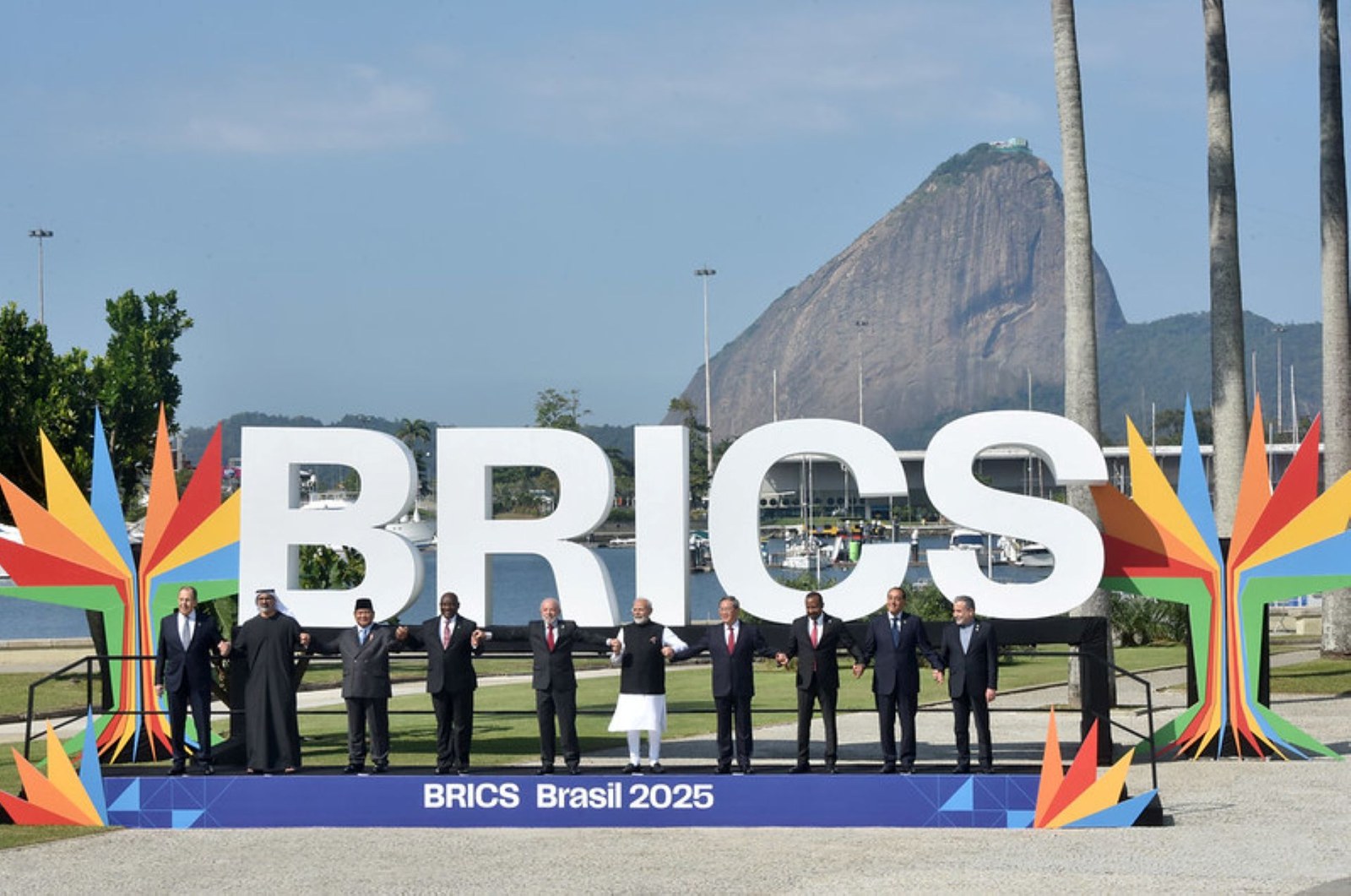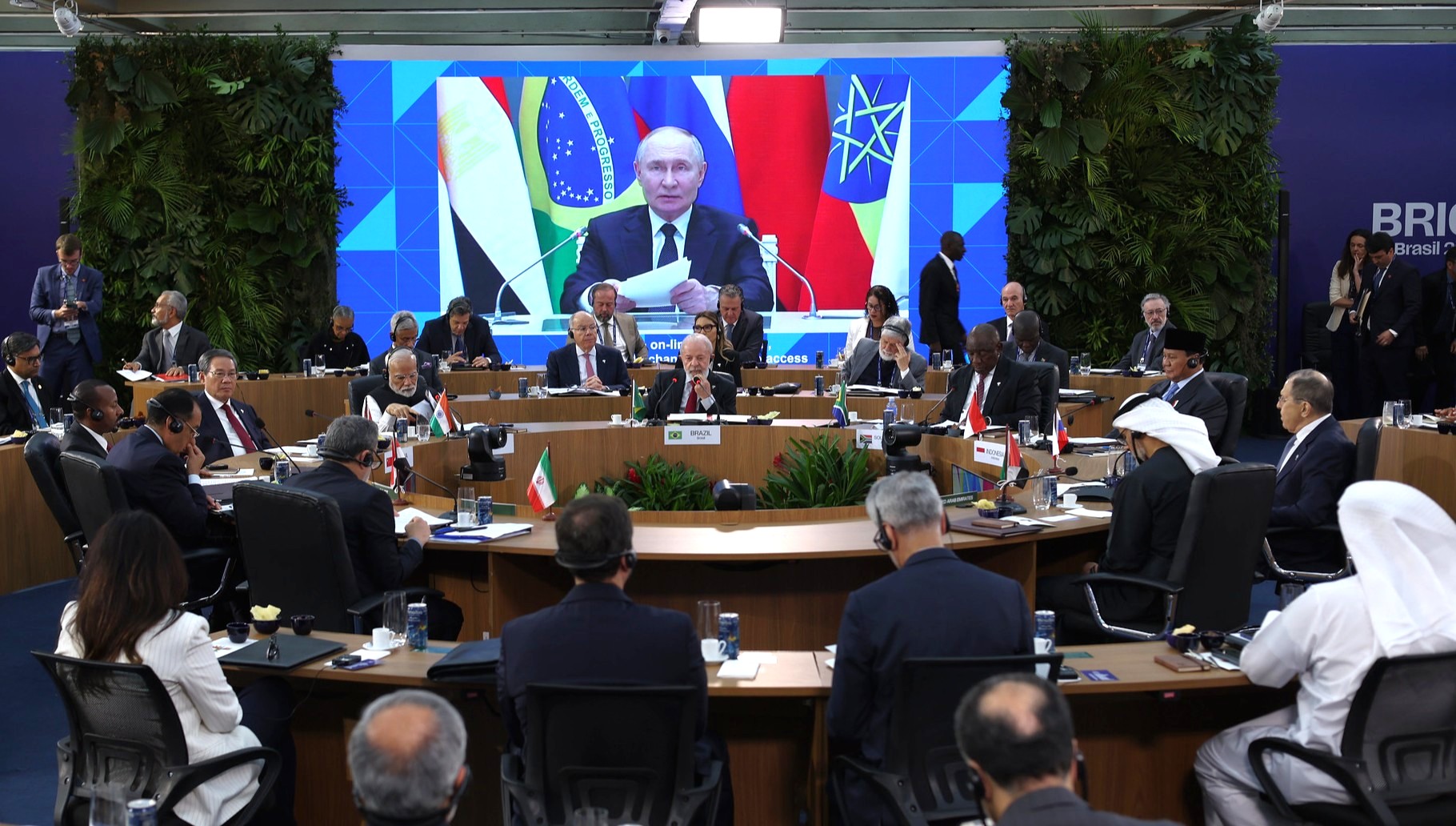BRICS Summit signs historic commitment in Rio for more inclusive and sustainable governance
At the 17th high-level leaders' meeting, BRICS adopted 126 commitments covering global governance, finance, health, artificial intelligence, climate change, and other strategic areas

By Maiva D’Auria | BRICS Brasil
On Saturday, 6 July, the leaders of the 11 largest emerging economies signed the Joint Declaration of the 17th BRICS Summit in Rio de Janeiro. Entitled "Strengthening Global South Cooperation for More Inclusive and Sustainable Governance", the document seals the group’s commitment to strengthening multilateralism, defending international law, and striving for a more equitable global order. It reflects months of intense coordination, with over 200 meetings held and 200 new cooperation mechanisms created or reinforced in areas such as eradicating hunger, tackling climate change, and developing emerging technologies.
“We want to reaffirm our commitment to the BRICS spirit of mutual respect and understanding, sovereign equality, solidarity, democracy, openness, inclusion, collaboration and consensus. Building upon the past 17 BRICS Summits, we are now extending our commitment to strengthening cooperation within the expanded BRICS, based on three pillars of cooperation: politics and security, economy and finance, and cultural and people-to-people cooperation. We are also enhancing our strategic partnership to benefit our peoples by promoting peace, a fairer and more representative international order, a revitalized and reformed multilateral system, sustainable development, and inclusive growth,” states one of the 126 commitments made by the leaders.
At the Summit, BRICS member countries reaffirmed their commitment to multilateralism and to defending international law, including the purposes and principles enshrined in the UN Charter. The document also calls for the increased participation of developing countries, particularly those in Africa, Latin America and the Caribbean, in global decision-making processes and structures.
In light of today’s multipolar realities, the countries agreed that it is essential for developing countries to strengthen their efforts to promote dialogue and consultations in pursuit of more just and equitable global governance, and of mutually beneficial relations among nations. “We recognize that multipolarity can create opportunities for developing countries and emerging markets (DCEMs) to realize their constructive potential and benefit from inclusive and equitable economic globalization and cooperation that is universally advantageous. We want to emphasize the importance of the Global South as a driver of positive change, especially amid significant international challenges—including escalating geopolitical tensions, economic slowdown, accelerated technological transformation, protectionist measures and migration challenges.”
Finance
In the financial realm, the 11 countries emphasized the need to increase IMF quotas and World Bank shareholding of emerging and developing countries.
"We want to reiterate that IMF quota realignment should not come at the expense of developing countries, but rather reflect the relative positions of countries in the global economy and increase DCEM quotas"
Health

When it comes to health, the countries acknowledged the interconnected nature of global health challenges and their cross-border implications. They reaffirmed their commitment to strengthening global health governance by enhancing international cooperation and solidarity.
"We are committed to actively supporting efforts to strengthen the global health architecture by promoting equality, inclusion, transparency, and responsiveness. This ensures that no country is left behind in achieving the health-related Sustainable Development Goals," BRICS’ joint understanding argues.
Another milestone is the launch of the Partnership for the Elimination of Socially Determined Diseases, which promotes health equity and demonstrates the BRICS' commitment to addressing the root causes of health disparities, such as poverty and social exclusion.
Artificial Intelligence
For the first time, artificial intelligence (AI) governance plays a prominent role in the BRICS agenda, offering a shared Global South perspective on this innovative technology and bringing economic and developmental aspects to the forefront of the discussion. In their joint declaration, the countries recognize that AI presents a unique opportunity to drive progress toward a more prosperous future. However, to achieve this, global AI governance must mitigate potential risks and meet the needs of all countries, including those in the Global South. "A collective global effort is needed to establish AI governance that upholds our shared values, addresses risks, builds trust, and ensures broad and inclusive international collaboration and access."
Climate change
In preparation for COP30—also under Brazilian leadership in November—the countries recognized the Tropical Forest Forever Fund (TFFF) as an innovative mechanism to mobilize long-term financing for tropical forest conservation, encouraging ambitious donations from potential partners.
"Our Climate Framework Declaration charts a roadmap for the next five years to transform our capacity to raise resources for fighting climate change. With the collective scale of the BRICS, we will combat the climate crisis while make our economies stronger and fairer,” the document states.
Promoting Peace, Security, and International Stability
One of the pillars of the declaration is its commitment to addressing ongoing conflicts in various parts of the world, and the current polarization and fragmentation of the international order. The leaders express concern over the current trend of sharply rising global military expenditures at the expense of adequate financing for the development of emerging countries. They advocate for a multilateral approach that respects diverse national perspectives and positions on crucial global issues, including sustainable development, hunger and poverty eradication, and global climate action. They also express deep concern over attempts to link security with the climate agenda.
In addition to the traditional leaders' declaration, three other documents reflecting the priorities of the Brazilian presidency were approved: the BRICS Leaders' Framework Declaration on Climate Finance, the BRICS Leaders' Declaration on Global Governance of Artificial Intelligence, and the BRICS Partnership for the Elimination of Socially Determined Diseases. “These initiatives reflect our joint efforts to promote inclusive and sustainable solutions to pressing global issues."
Translation: Luana Ferreira de Freitas (POET/UFC)
Proofreading: Enora Lessinger (POET/UFC)